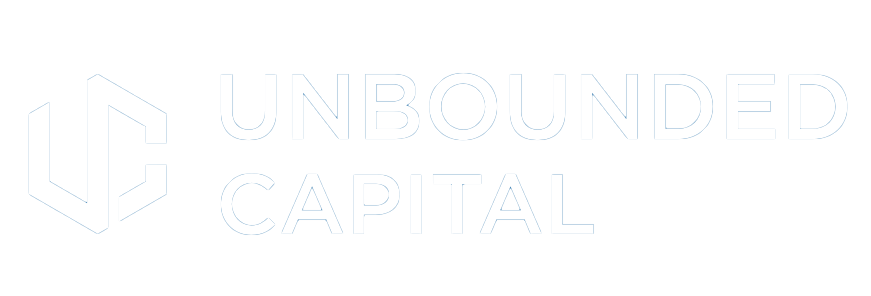At Unbounded Capital, we see Bitcoin as much more than the world’s most efficient peer to peer cash system. At a fundamental level, Bitcoin is a ruleset used to create a public database. This database has unique qualities compared to any existing database solution. It’s permissionless, anyone can read to or write from the database. It is immutable — an unchanging, permanent record is kept of all on-chain data. Most importantly, it is globally distributed and maintained by actors who are economically incentivized to be honest. To users, this means that the database is trustworthy now and in the long-run.
Among the various groups of people who would call themselves Bitcoiners, those utilizing Bitcoin SV (BSV) have the most expansive vision of how this database can be used. From among the BSV community, Planaria Corp’s founder and CEO, currently going by the pseudonym unwriter (not the first major bitcoiner to take this option), has one of the most innovative and expansive visions for how this database will transform the face of tech. Unlike many other Bitcoin entrepreneurs who fall in love with Bitcoin’s technology and then seek to build a business utilizing it, unwriter came to Bitcoin because he realized it was the best way to achieve his unique vision of the future, a world where applications are highly communicative and interoperable.
The Future of Applications
In today’s application environment, the most common business model is one that offers some sort of free service to the user in exchange for ownership of their personal data. This data is then sold, most likely to advertisers. Because the data is the product, there is a strong incentive to create a wall around the data and only share it in situations where it is absolutely necessary. For example, Facebook and Netflix are both collecting as much data as possible, but they share almost nothing with one another. A user’s Facebook and Netflix experiences are totally separate. Perhaps in a different application paradigm one could share a clip of a Netflix show on Facebook and any Facebook user with a Netflix account could watch.
This data-collection business model can make sense, but it is often done because there is no viable alternative. The lack of alternatives is in part a result of the current payments system and its inability to process small payments cheaply. On BSV, micropayments are possible because transaction fees are hundreths of cents and falling. Compare Twitter to Twetch for an example of how micropayments can change the dynamics of application development. Twetch today is like Twitter on BSV. The main differences are in where data is stored and how the app utilizes micropayments.
Twitter data is stored on Twitter controlled servers where Twetch data is stored on the BSV blockchain. If a Twitter user wants to quit and take their tweets with them, too bad. Twitter also reserves the right to ban users for reasons which can be opaque. On Twetch, a dissatisfied user can leave and still access their data.They could even use the same set of twetches on multiple UIs if they had a reason to do so. Twetch also uses micropayments to drive revenue and create a better user experience. Twetches cost 2c, follows cost 10c, likes 5c, and mentions 0.1c. Most of that revenue goes to the Twetcher meaning a Twetcher with many followers receiving many likes can earn a good amount of money. Introducing micropayments also reduces the incentive to create spam while increasing the incentive to create content that other users value. On Twitter, the incentive to spam is high. Follower counts, like counts, and other metrics are not reliable because of the prevalence and economic viability of utilizing bots and other fake accounts.
unwriter sees the writing on the wall for applications using the data-collection model to drive revenue. In a world where other payment methods are possible, more users will adopt paid versions of applications rather than part with extremely valuable data. This shift will see applications less incentivized to create intra-app network effects to grow a walled garden of data and instead will defer to the network effects an individual creates in their desire to have apps communicate effectively to improve user experience.
How Planaria Corp is Creating the Pipes for App Interoperability
In Planaria’s documentation, unwriter has described how blockchain data can flow like electricity flowing through a power grid. The blockchain is the powerplant, the source of all data. That data is then converted into a streamable format and sent through high speed power lines. Different types of data then get sent into local lines, and finally individual houses and buildings get the exact data they need.
This power grid analogy is the structure of the Planaria model. unwriter has built the tools — grid planaria, bitbus, neon planaria, and overpool among them — and many applications in the BSV ecosystem are utilizing them to great effects. These applications include Twetch, bitcoinblocks.live, TonicPow, Agora, and many others.
In our view, unwriter is approaching the right problem in the right way. We believe that the BSV blockchain will grow into the world’s largest database. Serving data effectively to applications is a new challenge and one that will affect almost any application seeking to use blockchain as a backend data-basing solution. Planaria is not only designed to be efficient and developer-friendly, but also to serve an increasingly interoperable application environment. We believe unwriter is truly ahead of the pack in anticipating and developing solutions for the problems that applications built on BSV will experience. We think that belief is shared by our co-investors including two of the leading BSV miners Coingeek and mempool. They are building the tools to process and store the world’s largest database, and they believe, as do we, that unwriter has the chops and wherewithal to serve that data to the masses.

